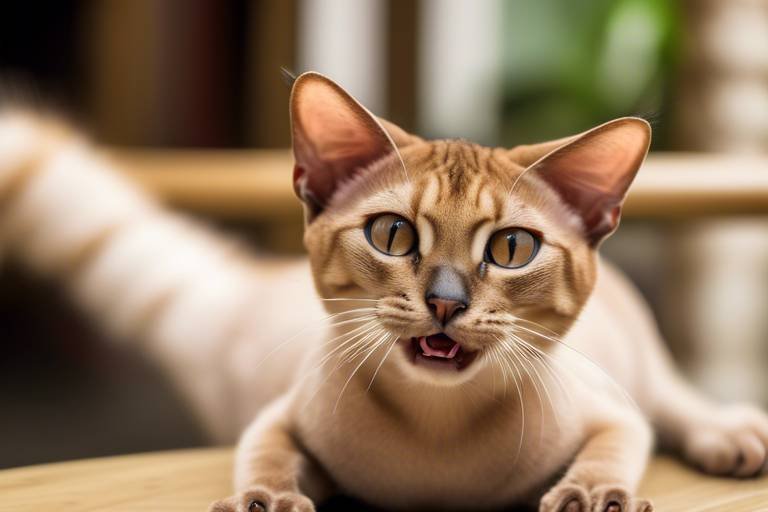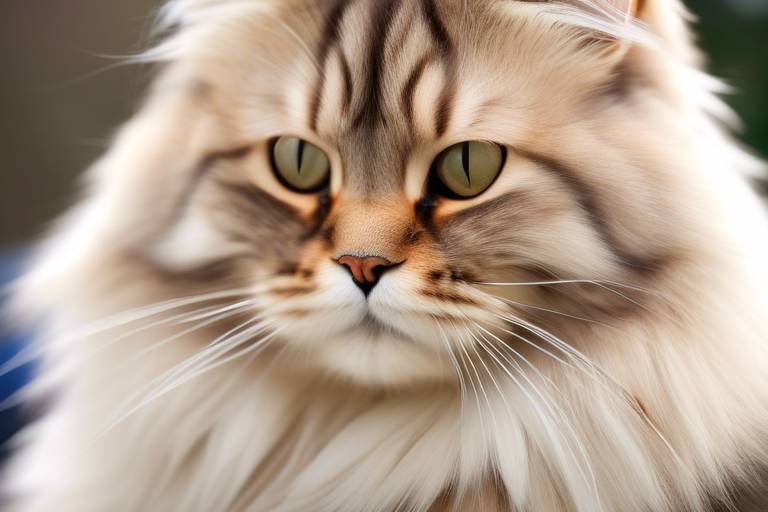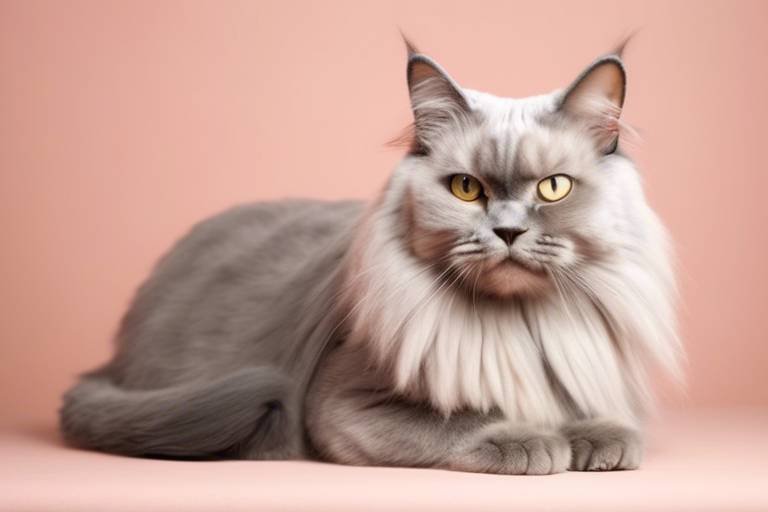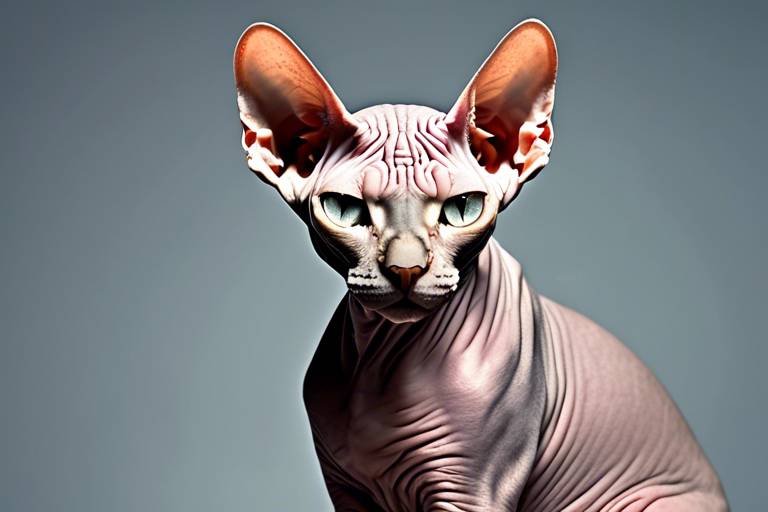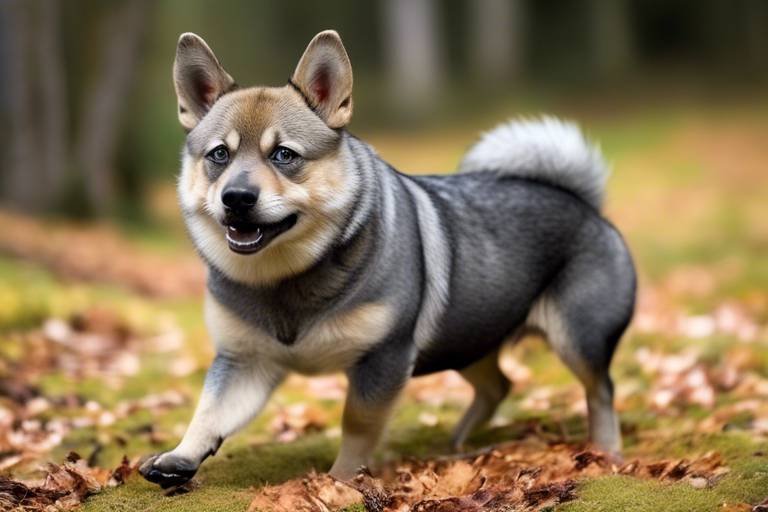The Playful Spirit of Irish Wolfhounds
Irish Wolfhounds are not just dogs; they are gentle giants that embody a unique blend of strength and grace. With their towering stature and soft, expressive eyes, these magnificent creatures have a playful spirit that captivates everyone around them. Imagine a graceful, furry athlete, bounding through the fields with the enthusiasm of a puppy, yet possessing the calm demeanor of a wise old sage. This delightful combination makes them cherished companions in many households.
What sets Irish Wolfhounds apart is their affectionate nature. They thrive on companionship and are known to form deep bonds with their families. Whether it’s a game of fetch in the backyard or a cozy snuggle on the couch, these dogs bring joy and warmth to any environment. Their playful antics can lighten the mood in an instant, reminding us all to embrace the simple pleasures of life. But what truly makes them special is how they interact with children, other pets, and even strangers, showcasing their friendly disposition and adaptability.
As we dive deeper into the world of Irish Wolfhounds, we’ll explore their temperament, playful activities, and the importance of play in their development. You'll see how these majestic dogs can transform a household into a lively, loving home filled with laughter and joy. So, are you ready to discover the enchanting world of Irish Wolfhounds and why they are considered one of the most delightful breeds around? Let’s embark on this journey together!

Understanding the Irish Wolfhound Temperament
Irish Wolfhounds are not just large dogs; they embody a gentle giant persona that captures the hearts of many. Often described as affectionate and loyal, these dogs bring an air of calmness and warmth to any household. One of the most remarkable aspects of their temperament is their friendly nature. Unlike some breeds that might be standoffish or overly protective, Irish Wolfhounds tend to be welcoming and sociable, making them excellent companions for families and individuals alike.
Understanding the temperament of an Irish Wolfhound is crucial for potential owners. These dogs are known for their playful spirit, but they also possess a remarkable level of intelligence. This combination means that while they enjoy playtime, they also require mental stimulation to keep boredom at bay. Just like humans, dogs can become restless and anxious if they don't have enough to engage their minds. Therefore, incorporating both physical and mental activities into their daily routine is essential for their happiness.
Irish Wolfhounds are typically very affectionate with their families, often forming strong bonds with their human companions. They thrive on love and attention, and many owners find that their Wolfhounds are happiest when they are included in family activities. This breed is known to get along well with children, showcasing a playful side that can turn any backyard into a playground. However, due to their size, it's important to supervise interactions between young children and Irish Wolfhounds to ensure safety for both parties.
Moreover, Irish Wolfhounds exhibit a natural gentleness that makes them less likely to exhibit aggressive behavior. They are often described as patient and tolerant, which is why they can adapt well to various living environments, whether it's a bustling family home or a quieter space. However, it’s important to note that socialization plays a key role in shaping their temperament. Early exposure to different people, pets, and environments can help them develop into well-rounded adults.
In summary, the temperament of an Irish Wolfhound can be characterized by the following traits:
- Affectionate - They thrive on love and companionship.
- Gentle - Known for their calm demeanor.
- Playful - Enjoy engaging in various activities.
- Intelligent - Require mental stimulation to stay happy.
- Social - Get along well with children and other pets.
Understanding these traits can help potential owners appreciate what it means to welcome an Irish Wolfhound into their lives. They are not just pets; they are family members who offer unwavering loyalty and joy. With the right environment and socialization, these magnificent hounds can truly shine as the beloved companions they are meant to be.
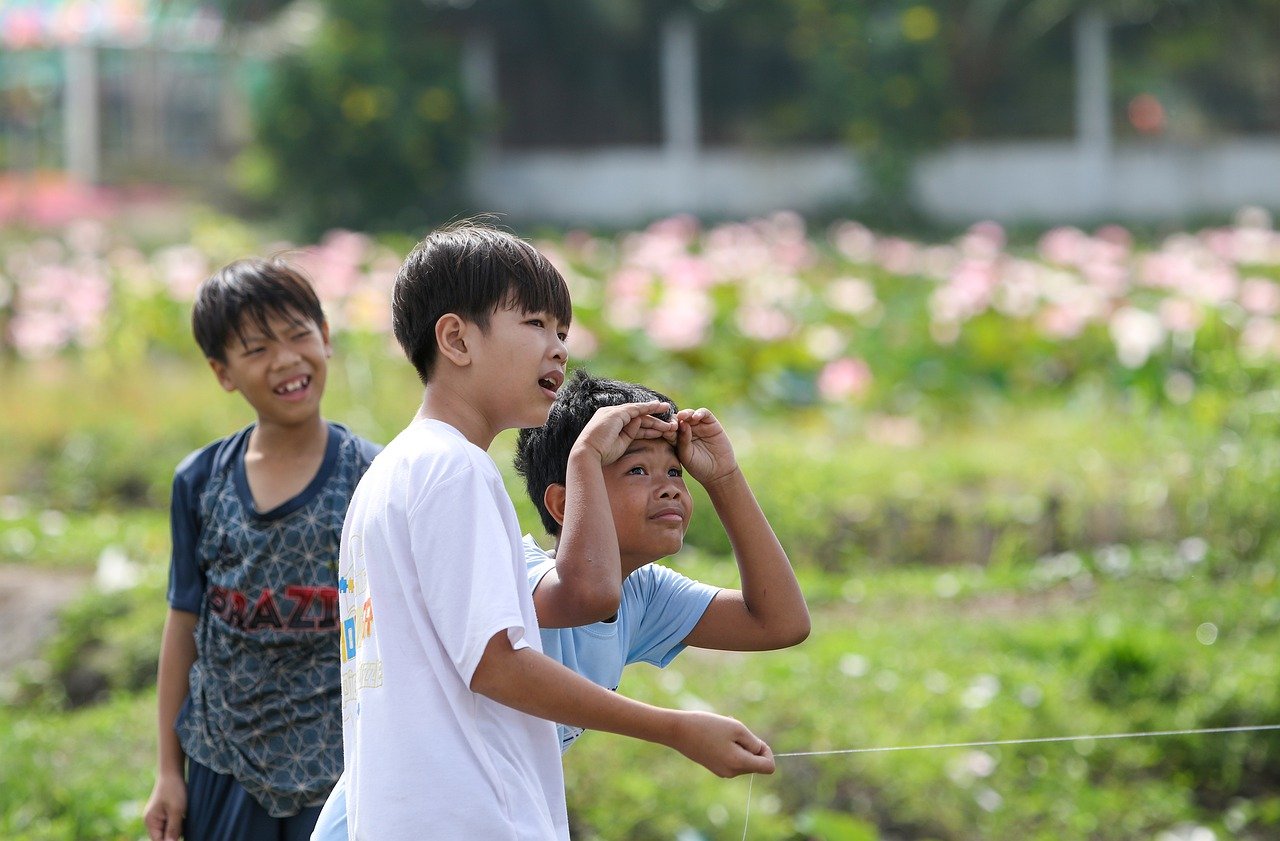
Playful Activities for Irish Wolfhounds
Engaging your Irish Wolfhound in playful activities is not just a luxury; it's a necessity for their overall health and happiness. These gentle giants possess a unique blend of strength and grace, and they thrive when given the opportunity to express their playful nature. Imagine a giant puppy, bounding through a field, tail wagging like a flag in the wind—this is the essence of an Irish Wolfhound at play. Their playful spirit is infectious, and it’s crucial to channel that energy into activities that stimulate both their body and mind.
One of the best ways to keep your Irish Wolfhound happy is through outdoor adventures. These dogs were originally bred for hunting and require plenty of space to roam and explore. Think of it as giving them a canvas to paint their joy on. Whether it's a brisk walk in the park or a full-on hike through the woods, Irish Wolfhounds revel in the great outdoors. They are natural athletes, and their large size can sometimes be intimidating, but their hearts are as big as their stature. Regular outdoor play not only helps burn off excess energy but also keeps them mentally sharp and socially engaged.
Socialization plays a pivotal role in their playful nature. Introducing your Irish Wolfhound to other dogs can be a game-changer. Just like humans, dogs benefit from social interactions, and Irish Wolfhounds are no exception. They are typically friendly and gentle with other dogs, which can lead to delightful play sessions. Imagine a group of dogs, including your Wolfhound, frolicking together, their playful barks echoing in the air. This kind of interaction not only enhances their playful spirit but also teaches them valuable social skills that are essential for a well-rounded canine companion.
Additionally, incorporating interactive toys and games into your routine can significantly boost your Irish Wolfhound's mental and physical stimulation. These toys are designed to challenge their problem-solving skills and keep them entertained for hours. Some popular options include puzzle feeders, tug toys, and fetch toys that dispense treats. When your Irish Wolfhound engages with these toys, it’s like giving them a mental workout, which is just as important as physical exercise. The joy they exhibit while figuring out a puzzle or playing tug-of-war is a sight to behold!
Finally, let’s not forget about the importance of training techniques that encourage playfulness. Training should never be a chore; instead, it should be an opportunity to bond with your dog. Use positive reinforcement methods to reward your Irish Wolfhound for playful behaviors. This could be as simple as a tasty treat or a hearty belly rub when they successfully fetch a ball. The more they associate training with fun, the more they’ll want to participate. Think of training as a game where both you and your dog are players, making it an enjoyable experience for everyone involved.
In summary, the playful activities you engage in with your Irish Wolfhound are vital for their well-being. From outdoor adventures to socialization with other dogs, and from interactive toys to effective training techniques, each activity contributes to a happy, healthy, and well-adjusted canine companion. So, let your Irish Wolfhound's playful spirit shine and create lasting memories together!
Outdoor Adventures
When it comes to our beloved Irish Wolfhounds, nothing quite compares to the thrill of outdoor adventures. These magnificent giants, known for their impressive stature and gentle nature, truly come alive in the great outdoors. Imagine a scene where your Wolfhound bounds through a field, their long legs gracefully propelling them forward, as if they were born to run. This is not just play; it’s a vital part of their well-being. Outdoor activities are like a breath of fresh air for them, stimulating their senses and allowing them to express their playful spirit.
Irish Wolfhounds are energetic and need ample space to stretch their legs. Whether it’s a leisurely stroll in the park or an exhilarating hike through rugged trails, these adventures are essential for their physical health. Regular outdoor exercises help in maintaining a healthy weight, strengthening their muscles, and improving their cardiovascular health. Plus, it’s a fantastic way for them to release pent-up energy, which can otherwise lead to boredom and destructive behavior at home.
Now, let’s dive into some of the most enjoyable outdoor activities for your Irish Wolfhound:
- Hiking: Taking your Wolfhound on a hike is an excellent way to bond while exploring nature. They love to navigate different terrains, and the variety keeps them engaged.
- Running: If you’re a runner, your Irish Wolfhound will make the perfect running partner. Their natural speed and endurance make them great companions on longer runs.
- Playing Fetch: A game of fetch in an open field can be incredibly rewarding for your Wolfhound. They enjoy the chase, and it’s a great way to encourage their natural instincts.
Remember, Irish Wolfhounds are large dogs that require a significant amount of exercise to stay happy and healthy. A simple backyard isn’t enough for their energetic needs. They thrive in open spaces where they can roam freely. Think of it as giving them a taste of their ancestral roots, where they once chased game across vast landscapes. By providing them with these outdoor adventures, you are not only ensuring their physical health but also enriching their mental well-being.
Moreover, being outdoors allows them to interact with a variety of sights, sounds, and smells, which is crucial for their sensory development. It’s like a playground for their minds! They learn to navigate their environment, encounter other animals, and even socialize with fellow canines. This exposure is important for their adaptability and helps them develop into well-rounded companions.
In conclusion, outdoor adventures are not just a luxury for Irish Wolfhounds; they are a necessity. By incorporating regular outdoor activities into their routine, you are investing in their happiness and health. So, lace up your hiking boots, grab a leash, and prepare for some unforgettable moments with your playful Irish Wolfhound!
Socializing with Other Dogs
Socialization is a crucial aspect of raising a happy and well-adjusted Irish Wolfhound. These gentle giants, known for their friendly demeanor, thrive in environments where they can interact with other dogs. Imagine your Irish Wolfhound as a social butterfly; they enjoy making new friends and playing in a pack. Regular interactions with other dogs not only help them develop their social skills but also enhance their playful spirit, making them more adaptable to various situations.
When introducing your Irish Wolfhound to other dogs, it’s essential to create a positive and safe environment. Start with calm and friendly dogs to ensure your pup feels secure. The first encounters should be brief and controlled, allowing your Wolfhound to gauge the other dog's behavior without feeling overwhelmed. You wouldn’t throw a shy child into a bustling playground right away, right? It’s all about easing them into the experience.
As your Irish Wolfhound becomes more comfortable, you can gradually increase the time spent with other dogs. This helps them learn important cues and signals, which are vital for their social development. Watch for signs of playfulness, such as wagging tails, play bows, and a bouncy demeanor. Engaging in play with other dogs not only fulfills their instinctual needs but also provides a great outlet for their energy. It's like letting a child run free in a candy store—pure joy!
Moreover, socializing your Irish Wolfhound can lead to numerous benefits, including:
- Improved Behavior: Regular interaction with other dogs can reduce behavioral issues, such as aggression or fearfulness.
- Enhanced Confidence: Meeting various dogs helps boost your Wolfhound’s confidence, making them more adaptable to new experiences.
- Physical Exercise: Playtime with other dogs provides an excellent source of physical activity, which is essential for their overall health.
Consider joining a local dog park or a training class where your Irish Wolfhound can mingle with other dogs. These settings often provide structured environments that facilitate positive interactions. Just like a community gathering, these experiences can enrich your Wolfhound's life, making them happier and more well-rounded companions.
In conclusion, socializing your Irish Wolfhound with other dogs is not just beneficial; it’s a vital part of their upbringing. By ensuring they have ample opportunities to play and interact, you’re not only nurturing their playful spirit but also setting the foundation for a lifelong bond filled with joy and companionship.
- How often should I socialize my Irish Wolfhound? It's best to socialize them regularly, especially during their puppy stages. Aim for at least a few times a week.
- What if my Irish Wolfhound is shy around other dogs? Take it slow! Introduce them to calm and friendly dogs, and gradually increase exposure as they become more comfortable.
- Are there specific breeds that are better for socializing with Irish Wolfhounds? Generally, friendly and well-mannered dogs of any breed can be good companions for socialization.
Interactive Toys and Games
When it comes to keeping your Irish Wolfhound engaged and entertained, interactive toys and games are a game-changer! These gentle giants may be known for their size, but their playful spirit is boundless. Think of interactive toys as the magic wands that can transform a lazy afternoon into a fun-filled adventure. Whether it's a simple tug-of-war or a complex puzzle, these activities not only stimulate their minds but also provide the physical exercise they need to stay healthy.
One of the best types of interactive toys for Irish Wolfhounds are puzzle toys. These toys require your furry friend to solve a challenge in order to receive a treat, making them think critically while they play. Just imagine your Wolfhound's excitement as they nudge, paw, and manipulate the toy to uncover the hidden goodies! This type of mental stimulation is crucial for their overall well-being. Here are some popular options:
| Toy Type | Description | Benefits |
|---|---|---|
| Puzzle Feeders | Devices that dispense treats as your dog figures them out. | Promotes mental stimulation and slows down eating. |
| Interactive Tug Toys | Rope toys designed for tugging games between you and your dog. | Strengthens the bond and provides physical exercise. |
| Fetch Toys | Durable balls or frisbees that can withstand strong jaws. | Encourages running and retrieving, great for energy release. |
Another fantastic way to engage your Irish Wolfhound is through interactive games that you can play together. Games like hide-and-seek can be incredibly fun and provide mental stimulation. You can hide somewhere in your house or yard and call your dog to find you. The thrill of the chase and the joy of discovery make this game a favorite among many Wolfhound owners.
Moreover, don’t underestimate the power of simple games like fetch or catch. These games can be modified to suit your dog’s energy levels and preferences. For example, if your Wolfhound seems to tire quickly, you can shorten the distance you throw the ball or frisbee. On the other hand, if they’re bursting with energy, throw it farther and watch them soar! The excitement on their face as they dash to retrieve the toy is simply priceless.
In conclusion, incorporating a variety of interactive toys and games into your Irish Wolfhound's daily routine is essential for their happiness and health. Not only do these activities foster their playful nature, but they also enhance the bond you share. So, grab that tug toy or puzzle feeder, and let the fun begin!
- What types of toys are best for Irish Wolfhounds? Look for durable toys that can withstand their strong jaws, such as puzzle feeders, tug toys, and fetch toys.
- How often should I play with my Irish Wolfhound? Aim for at least 30 minutes of interactive playtime each day, along with additional walks and outdoor activities.
- Can interactive toys help with separation anxiety? Yes! Engaging toys can keep your Irish Wolfhound occupied and distracted when you're not home.
Training Techniques for Playfulness
Training your Irish Wolfhound to be playful is not just about teaching them tricks; it's about fostering a joyful relationship that encourages their natural instincts. These gentle giants thrive on interaction, and the right training techniques can help unlock their playful spirit while reinforcing positive behavior. One effective method is to incorporate positive reinforcement. This means rewarding your pup with treats, praise, or playtime whenever they engage in desired behaviors. For instance, if your Wolfhound fetches a ball or plays tug-of-war, shower them with affection and a tasty treat. This not only motivates them to repeat the behavior but also strengthens your bond.
Another great technique is to use clicker training. This method involves using a clicker to mark the exact moment your dog performs a desired action, followed by a reward. It’s a fun and engaging way to communicate with your Irish Wolfhound. Imagine the joy on their face when they realize that a simple click means they’re about to receive a reward! This method can be particularly effective in teaching tricks that stimulate their playful nature, like rolling over or jumping through hoops.
Moreover, establishing a routine can also enhance their playful behavior. Dogs, including Irish Wolfhounds, thrive on predictability. Setting aside specific times each day for play can create anticipation and excitement. You might say, "It's playtime!" and watch as their eyes light up with joy. Incorporating a mix of activities—such as fetch, agility exercises, or even hide-and-seek—can keep them mentally and physically stimulated.
Socialization is another key aspect of training. Introducing your Irish Wolfhound to various environments, people, and other dogs helps them become well-adjusted and confident. This not only makes them more adaptable but also encourages their playful spirit. When they meet new friends—whether canine or human—they're likely to engage in playful interactions, which is essential for their emotional development.
Lastly, remember that patience is crucial. Training should be a fun and enjoyable experience for both you and your Irish Wolfhound. If they seem disinterested or frustrated, take a step back and try a different approach. The goal is to create an environment where they feel comfortable and excited to engage in play. By using these techniques, you can nurture their playful nature and ensure they grow into happy, well-adjusted companions.
- How often should I train my Irish Wolfhound? It's best to train them in short, frequent sessions—about 5 to 10 minutes, 2 to 3 times a day. This keeps their attention and makes learning enjoyable.
- Can I train my Irish Wolfhound to play with other dogs? Yes! Socialization is key. Gradually introduce them to other dogs in a safe environment, and use positive reinforcement to encourage playful interactions.
- What types of toys are best for promoting playfulness? Interactive toys like tug ropes, balls, and puzzle toys that dispense treats are great for keeping your Irish Wolfhound engaged and active.
- How can I tell if my Irish Wolfhound is ready to play? Look for signs like wagging tails, play bows, and excited barks. These behaviors indicate they are in the mood for some fun!
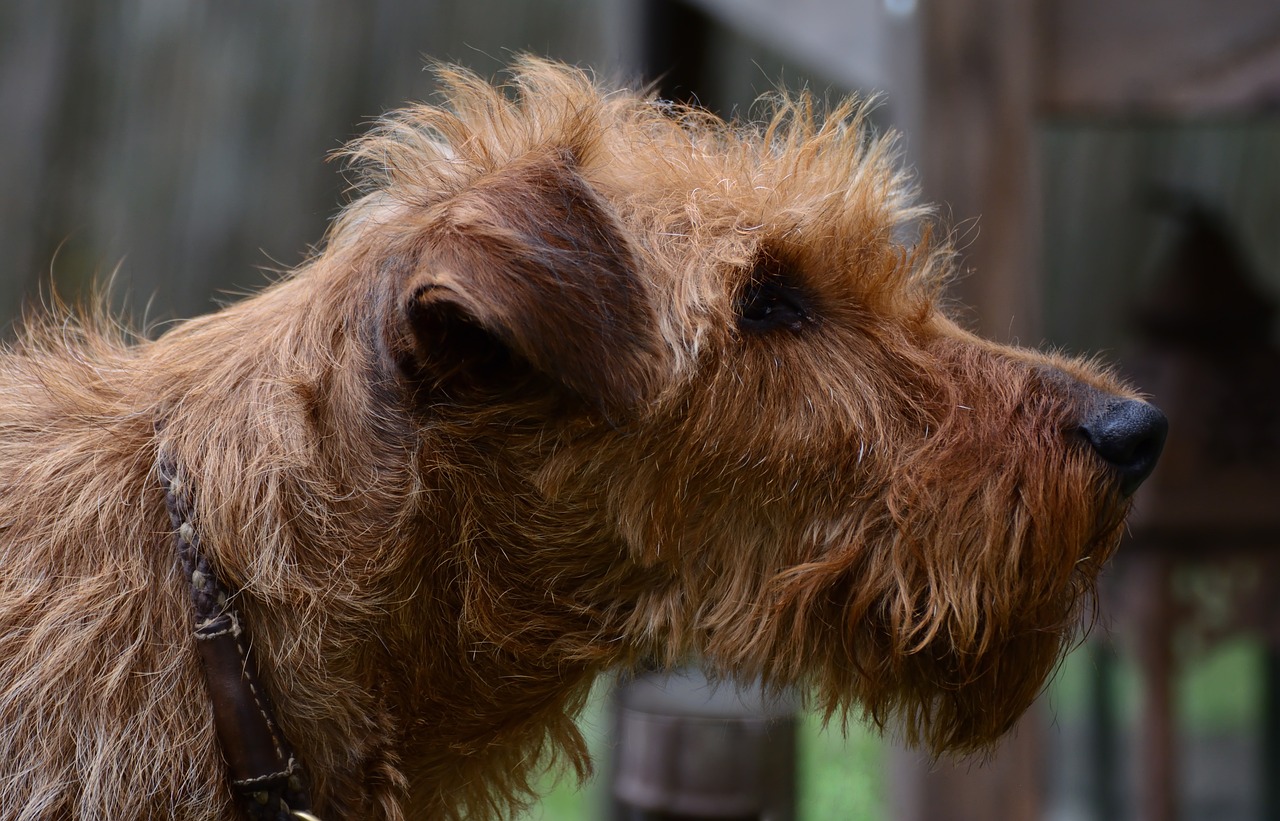
The Importance of Play in Their Development
When it comes to our furry friends, especially the majestic Irish Wolfhounds, play isn’t just a pastime; it’s a crucial part of their development. Just like children, these gentle giants learn and grow through playful interactions. Engaging in play helps them develop essential skills that shape their behavior, health, and overall happiness. Think of play as the building blocks of their personality, where each game and romp contributes to a well-rounded, sociable, and emotionally healthy dog.
One of the most significant benefits of play is its role in physical health. Regular playtime keeps Irish Wolfhounds active, helping them maintain a healthy weight and muscle tone. These dogs are naturally inclined to be energetic, and without sufficient play, they can become bored or frustrated, which may lead to undesirable behaviors. By incorporating various activities, such as fetch or tug-of-war, you not only provide them with exercise but also stimulate their minds. A tired dog is a happy dog, right?
Moreover, play is essential for developing social skills. When Irish Wolfhounds engage with other dogs or humans during play, they learn important cues about communication and interaction. For instance, they learn how to read body language and respond appropriately, which is crucial for their adaptability in different environments. Just imagine a puppy learning to navigate the world through playful encounters—each wag of the tail and playful bark is a step toward becoming a well-adjusted adult dog.
Additionally, playtime fosters emotional well-being. Irish Wolfhounds are known for their affectionate nature, and engaging in playful activities strengthens the bond between them and their owners. When you throw a ball or engage in a game of chase, you’re not just providing entertainment; you’re building trust and companionship. This bond is vital for their confidence and security, making them feel loved and valued within the family unit.
To illustrate the multifaceted benefits of play, consider the following table:
| Benefit of Play | Description |
|---|---|
| Physical Health | Maintains a healthy weight and muscle tone, reducing the risk of obesity-related issues. |
| Social Skills | Enhances communication skills and adaptability through interactions with other dogs and humans. |
| Emotional Well-being | Strengthens the bond with owners, fostering trust and a sense of security. |
In conclusion, play is not merely a fun activity for Irish Wolfhounds; it is a vital component of their development. By understanding the importance of play, owners can create enriching environments that promote physical health, social skills, and emotional well-being. So, the next time you toss a ball or engage in a fun game of tug, remember that you are contributing to your beloved Wolfhound's growth and happiness.
- How much playtime do Irish Wolfhounds need? Generally, they require at least an hour of play and exercise daily to stay healthy and happy.
- What are some recommended games for Irish Wolfhounds? Games like fetch, tug-of-war, and hide-and-seek are great for engaging their playful spirit.
- Can play help with training? Absolutely! Incorporating play into training sessions can make learning more enjoyable for your Irish Wolfhound.
- Is it important to socialize them during play? Yes, socialization is crucial. It helps them develop good behavior around other dogs and people.
Building Bonds Through Play
When it comes to Irish Wolfhounds, play is not just a pastime; it's a vital part of their emotional and social development. Engaging in playful activities with your furry friend can significantly enhance the bond between you two. Think of it like a dance; the more you interact and synchronize your movements, the stronger your connection becomes. Whether it’s a game of fetch or a simple tug-of-war, these moments are golden opportunities to deepen your relationship.
But why is play so crucial? For starters, it allows you to communicate with your Irish Wolfhound in a language they understand—fun! Through play, you can teach them commands, improve their agility, and even reinforce good behavior. For instance, incorporating commands like "sit" or "stay" during playtime not only makes the experience enjoyable but also instills discipline. It’s a win-win situation!
Moreover, playtime is a fantastic way to reduce stress and anxiety for both you and your pup. Imagine coming home after a long day, feeling drained, and then seeing your Irish Wolfhound wagging its tail, ready to play. That joy is contagious! It lifts your spirits and creates a relaxed atmosphere, making your home feel like a sanctuary. Plus, the laughter and smiles shared during these moments are priceless.
Another essential aspect of building bonds through play is the opportunity for socialization. When you include other pets or even humans in playtime, your Irish Wolfhound learns valuable social skills. They become more adaptable and confident, which is crucial for their overall well-being. Remember, a well-socialized dog is a happy dog!
So, what are some fun activities to consider? Here are a few ideas:
- Fetch: A classic game that never gets old. Not only does it provide exercise, but it also taps into their natural instincts.
- Tug-of-war: This game is excellent for building strength and teaches them about gentle play.
- Obstacle courses: Set up a mini agility course in your backyard. It’s a fun way to challenge them mentally and physically.
- Hide and seek: A delightful way to engage their senses and promote problem-solving skills.
In essence, every playful interaction with your Irish Wolfhound is a thread woven into the fabric of your relationship. The more you play, the stronger the bond becomes. So, grab that squeaky toy, head outdoors, and let the fun begin! Your Irish Wolfhound is not just a pet; they are a cherished companion who thrives on your love and attention.
- How often should I play with my Irish Wolfhound? Regular play sessions, ideally daily, can help maintain their physical and emotional health.
- What are the best toys for Irish Wolfhounds? Look for durable toys that can withstand their strength, such as rubber balls, ropes, and interactive puzzles.
- Can I train my Irish Wolfhound while playing? Absolutely! Incorporating training commands during playtime is a fun and effective way to reinforce good behavior.
- How can I tell if my Irish Wolfhound wants to play? Look for signs like wagging tails, playful barks, and bringing you their favorite toys.
Recognizing Playful Behavior
Understanding the playful behavior of Irish Wolfhounds is not just about observing their actions; it’s about tuning into their unique personality. These gentle giants are known for their affectionate and friendly nature, and recognizing when they're ready to play can enhance your bond with them. So, how can you tell when your Irish Wolfhound is in a playful mood? Well, there are several telltale signs that you can look for!
First and foremost, watch for their body language. A happy Irish Wolfhound will often exhibit a playful stance, characterized by a low front end with their rear end raised. This position, often referred to as the "play bow," is a universal signal among dogs that they're ready for some fun. If you see your Wolfhound doing this, it’s like they're inviting you to join in on the fun!
Another sign to look for is the tail wagging. When excited, their tails can become like a propeller, spinning in circles. The faster the wag, the more enthusiastic they are! Combine this with a happy expression—ears perked up and a bright-eyed gaze—and you have a recipe for playtime. Additionally, if your Irish Wolfhound starts to bounce around playfully, almost as if they’re dancing, it’s a sure sign that they’re ready to engage.
In terms of vocalizations, playful Wolfhounds might let out a few barks or playful growls. These sounds are often accompanied by a playful demeanor, and they’re not aggressive; rather, they’re an invitation to join in the fun. It’s as if they’re saying, “Hey, let’s have a good time together!”
Moreover, consider their interactions with toys. If your Irish Wolfhound picks up their favorite toy, especially if they start tossing it in the air or nudging it towards you, it’s a clear indication that they want to play. They might even bring you their toy as if to say, “I want to share this joy with you!”
Lastly, don’t underestimate the power of enthusiasm. If your Irish Wolfhound starts zooming around the yard or your living room, this is often referred to as the “zoomies.” It’s a burst of energy that many dogs experience, and it’s a delightful sight to see! This is their way of expressing sheer joy and playfulness, and it’s a great opportunity for you to engage with them in a game of chase or fetch.
In summary, recognizing playful behavior in Irish Wolfhounds is all about observing their body language, vocalizations, and interactions with their environment. By being attentive to these signs, you can foster a joyful atmosphere that encourages play. Remember, play is not just a fun activity; it’s a crucial part of their development and your relationship with them!
- What are some common signs that my Irish Wolfhound wants to play?
Look for a play bow, wagging tail, bouncing around, and bringing you toys! - How much playtime do Irish Wolfhounds need?
They thrive on regular play sessions, ideally at least 30 minutes to an hour each day. - Can I train my Irish Wolfhound to play fetch?
Absolutely! With patience and positive reinforcement, most Irish Wolfhounds can learn to enjoy playing fetch.
Frequently Asked Questions
- What is the temperament of an Irish Wolfhound?
Irish Wolfhounds are known for their gentle and friendly demeanor. They are often described as affectionate giants, making them wonderful companions for families. Their calm nature allows them to get along well with children and other pets, which is a huge plus for families looking for a loyal friend.
- How much exercise do Irish Wolfhounds need?
These magnificent dogs require regular exercise to stay healthy and happy. Ideally, they should get at least 1 to 2 hours of physical activity each day. Activities like walking, running, and playing fetch are perfect for keeping their energy levels in check and ensuring they remain fit.
- What kind of playful activities can I do with my Irish Wolfhound?
Engaging your Irish Wolfhound in playful activities is essential. You can take them on outdoor adventures like hiking or running, or play interactive games that challenge their minds. Toys that dispense treats or require problem-solving can keep them entertained for hours!
- How can I socialize my Irish Wolfhound with other dogs?
Socialization is key for Irish Wolfhounds. Start by introducing them to other dogs in a controlled environment, like a dog park or during training classes. Positive interactions with other dogs will enhance their playful spirit and adaptability, making them more comfortable in various situations.
- What are the best training techniques to encourage playfulness?
Using positive reinforcement is one of the best training techniques. Reward your Irish Wolfhound with treats or praise when they engage in playful behavior. Incorporating training into playtime can also reinforce good behavior while keeping things fun and exciting for your furry friend.
- Why is play important for Irish Wolfhounds?
Play is vital for the development of Irish Wolfhounds. It contributes to their physical health, social skills, and emotional well-being. Engaging in play helps them develop strong bonds with their owners and promotes a happy, well-adjusted pet.
- How can I recognize playful behavior in my Irish Wolfhound?
Recognizing playful behavior is crucial for fostering a joyful environment. Look for signs such as a wagging tail, playful barks, and a bouncy demeanor. If your dog is bringing you toys or playfully nudging you, it’s a clear indication they’re ready for some fun!








